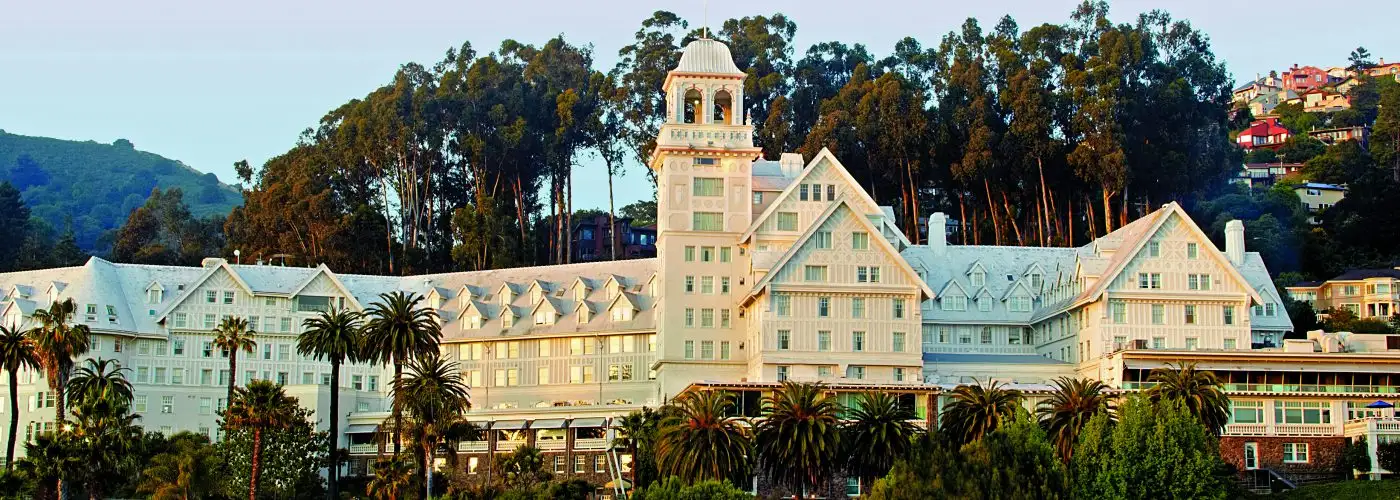The first clue that Berkeley’s century-old Claremont Hotel would retain its iconic identity was in the name change: The Claremont Club & Spa, a Fairmont Hotel. The Fairmont brand name was there, sure, but, as general manager Len Czarnecki made clear, “We wanted to keep the iconic identity.”
When, after a hundred years as an independent property, the Claremont Hotel reopened as a Fairmont property last December, I became curious: What happens when a hotel with a strong sense of identity suddenly acquires, as it were, a new last name?
The Claremont and the Fairmont had a unique partnership from the get-go. The Claremont Hotel first opened its doors in 1915, and had spent a century welcoming presidents and celebrities as an independent brand. For Fairmont, the prospect of a brand transition—rather than a renovation or a new build—was an unusual undertaking. With no specific roadmap, rebranding the grand hotel on the hillside border of Berkeley and Oakland was a process of invention on both sides.
That invention took two forms: a long-needed physical renovation and internal cultural changes to turn the independent Claremont into a full-fledged member of the Fairmont brand.
“The renovation was, in a way, the easiest piece,” says Czarnecki. To prepare for the Claremont’s new life as a Fairmont, the property underwent a $43 million renovation. The trick, Czarnecki notes, was to make sure the rooms, common spaces, and restaurants were designed to meet the needs of modern travelers while preserving the history and tradition of the hotel.
As the hotel underwent a facelift, Fairmont turned to the challenge of the cultural change. Because so much of the Fairmont’s identity as a luxury hotel chain comes from its high level of service, it was imperative, says Czarnecki, to get the Claremont aligned with the Fairmont’s brand values in short order. More than 500 employees went through training with a focus on creating memories for guests through emotional intelligence, personality, and local flavor—tactics not usually associated with hotel chains.
The Claremont occupies a special place not just as a host for out-of-town visitors, but as a point of affection for locals (of which I am one).
“This is a hotel that the community has had a love affair with for a century,” says Czarnecki. “And what we’re hearing from visitors is that the hotel is getting the long-overdue care and attention it deserves.”
With any luck, the next one hundred years will be just as iconic.
More from SmarterTravel:
- Top 15 Hotel Loyalty Programs
- Is Airbnb Killing the Hotel Business?
- 12 Lakeside Hotels That Need to Be Part of Your Summer Plans
Follow Christine Sarkis on Twitter @ChristineSarkis and Instagram @postcartography for more advice about making every vacation the best vacation.
We hand-pick everything we recommend and select items through testing and reviews. Some products are sent to us free of charge with no incentive to offer a favorable review. We offer our unbiased opinions and do not accept compensation to review products. All items are in stock and prices are accurate at the time of publication. If you buy something through our links, we may earn a commission.
Related
Top Fares From
Today's Top Travel Deals
Brought to you by ShermansTravel
12-Night Peru Escorted Tour, Incl. Sacred...
Wingbuddy
 vacation
$2198+
vacation
$2198+
Amsterdam to Copenhagen: Luxe, 18-Night Northern...
Regent Seven Seas Cruises
 cruise
$12399+
cruise
$12399+
Ohio: Daily Car Rentals from Cincinnati
85OFF.com
 Car Rental
$19+
Car Rental
$19+




